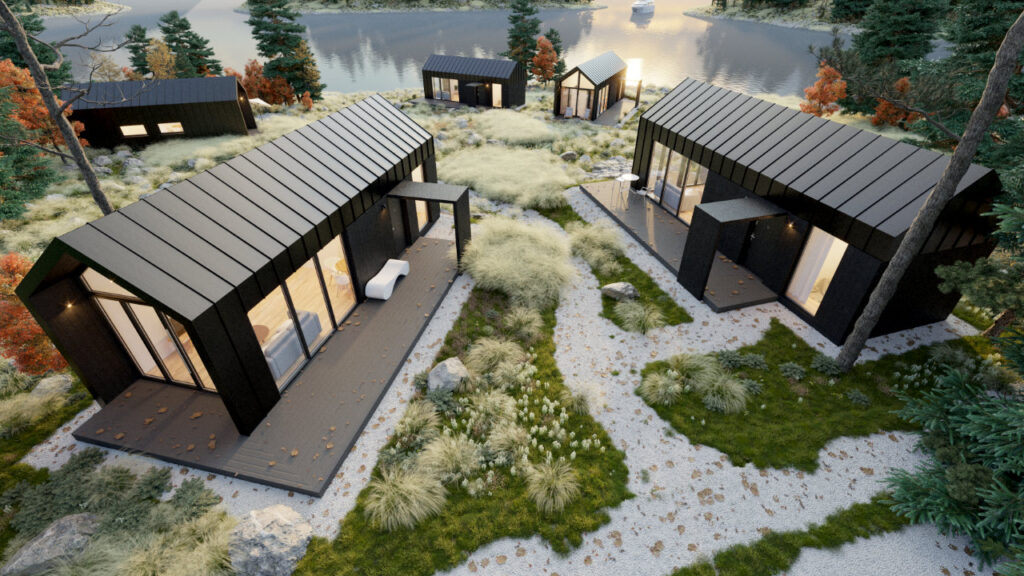
Urban development and modular housing’s future in cities
As cities around the world continue to expand and evolve, the need for innovative housing solutions becomes increasingly critical. Two prominent players in this space are Urban development and modular housing, which are transforming how we think about and approach housing in urban landscapes. The synergy between these concepts not only addresses housing shortages but also paves the way for sustainable and efficient urban living.

The Role of Urban Development in Modern Cities
Urban development refers to the social, cultural, economic, and physical development and management of city spaces. In the contemporary context, it is about creating environments that are conducive to economic and social integration, while also being mindful of sustainability. The importance of urban development cannot be overstated, especially as global populations are increasingly concentrated in urban areas.
Sustainability in Urban Growth
Sustainability is a paramount concern in urban development. Cities are actively seeking solutions that minimize environmental impact while maximizing resource efficiency. This involves everything from improving public transport systems to developing green spaces and sustainable buildings. Learn more about sustainable housing ideas.
Challenges in Urban Planning
Nonetheless, planning urban areas is a challenging endeavor. Urban planners must consider population density, infrastructure needs, and social services, all while maintaining an eye toward future growth and environmental impacts. Modular housing, with its potential for rapid deployment and adaptability, offers a promising solution to these challenges.
Innovation in Housing: The Rise of Modular Homes
Modular homes, often constructed in factories and then assembled on-site, offer a range of benefits that make them ideal for todays urban needs. They are becoming a popular choice in urban centers due to their efficiency, cost-effectiveness, and sustainability qualities.
The Cost-Effectiveness of Modular Construction
One of the main advantages of modular homes is their cost-effectiveness. The streamlined production process allows for significant savings, which are passed down to homeowners. This makes modular housing an attractive option for city dwellers looking to buy a home without the high cost associated with traditional buildings.
Sustainability Aspect of Modular Housing
Beyond cost, modular housing is also environmentally friendly. The controlled manufacturing environment reduces waste and improves quality control. This aligns with the growing emphasis on sustainability in urban development. Explore climate-resilient options.
The Intersection of Urban Development and Modular Homes
The intersection between urban development and modular housing is where the magic happens. This synergy allows for rapid response to housing demands, adaptable housing solutions, and the creation of sustainable urban environments. Modular housing can be particularly effective in urban areas experiencing rapid growth, addressing immediate housing shortages while urban plans progress.
Adaptability and Customization
Modular homes offer unparalleled adaptability. They can be customized to fit any urban landscape, ensuring they meet the specific needs of different neighborhoods or city zones. This flexibility is a key asset in urban development.
Reducing Construction Time
The efficiency of modular construction is another significant advantage. With much of the construction occurring off-site in factories, weather-related delays are minimized, allowing for faster occupancy and reduced construction time. This can be crucial in addressing urgent housing needs.
Looking at the Future: Urban Planning and Modular Innovations
The potential of modular housing as part of urban strategies is vast. Future urban developers could leverage these constructions to create smart, integrated city spaces with resilient infrastructure.
Integration with Smart City Technologies
Modular homes are perfectly positioned to integrate with smart city technologies. From energy-efficient fixtures to smart appliances, these homes can be at the forefront of technological integration. Smart gadgets in modular homes enhance connectivity and convenience.
Policy and Regulatory Considerations
However, broad adoption of modular housing requires supportive policies and regulations. Governments and urban planners need to create frameworks that facilitate these innovations without stifling their potential or quality.
Community Buy-In
Stakeholder engagement is crucial. Communities should be involved in urban planning processes to increase the acceptance and success of modular housing initiatives.
The Potential Impact of Modular Housing on Global Urban Areas
The potential for modular homes to transform urban spaces globally is immense. By offering scalable solutions, these homes can address various challenges presented by rapidly growing cities.
Case Studies from Across the Globe
Several cities worldwide are already using modular housing to tackle housing shortages. These case studies serve as valuable lessons in how to implement similar strategies in different cities successfully.
Evaluating Success and Challenges
Each case uniquely highlights the successes and obstacles faced when implementing modular systems. Evaluations of these programs can guide future development efforts.
Conclusion: Embracing a New Era of Urban Living
In conclusion, urban development and modular housing represent a powerful combination that can meet both present and future demands for sustainable, efficient, and affordable housing. As urban landscapes continue to change, these forward-thinking solutions offer a promising path towards vibrant and resilient cities.

FAQ
1. What is modular housing? Modular housing is a construction method where homes are built in sections or modules inside a factory setting, then transported to and assembled on a construction site.
2. What are the benefits of modular homes in cities? These homes are cost-effective, environmentally friendly, and require less time to construct, making them ideal for addressing housing shortages in urban areas.
3. How do modular homes contribute to sustainable urban development? Modular homes reduce construction waste, use energy-efficient methods, and integrate with smart technologies, aligning with global sustainability goals.
This article contains affiliate links. We may earn a commission at no extra cost to you.